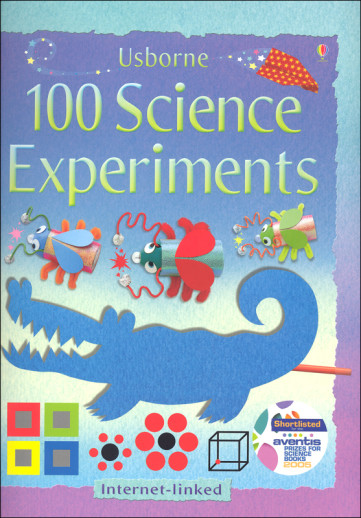We use cookies to make your experience better. To comply with the new e-Privacy directive, we need to ask for your consent to set the cookies. Learn more.
100 Science Experiments (Usborne)
Science in the elementary and middle school years is not complete without an abundance of hands-on activities, in my opinion, anyway. Whether your family uses one of the many fine science curricula available, unit studies, or unschooling, this book will become a frequently turned-to resource to enhance science concepts. Containing 22 categories of experiments, detailed steps, explanations, colorful illustrations, and internet links, there is much here to enhance your studies. The following is just a sampling of things children will make: varied crystals, a wormery, a compass, invisible ink, a butterfly feeder and much more. Other activities include children will see DNA, float an egg, separate mixtures, test their sense of taste and numerous others. The book concludes with an overview of the scientific process and encourages children to do their own scientific research. A glossary and list of experiments make it convenient for parents/teachers to quickly find the right activity to correspond with the day's lesson. SC. 96 pgs. ~Deanne
| Product Format: | Paperback |
|---|---|
| Brand: | Usborne |
| Grades: | 4-6 |
| ISBN: | 9780794510763 |
| Length in Inches: | 12.5 |
| Width in Inches: | 9.5 |
| Height in Inches: | 0.5 |
| Weight in Pounds: | 1.35 |

